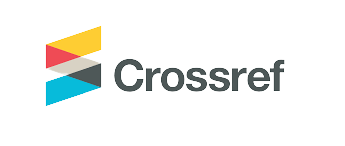Integration of Artificial Intelligence in the Islamic Religious Education Curriculum at Ibnurusyd Islamic College, Lampung
Keywords:
Artificial Intelligence, Islamic Religious Education, Curriculum Integration, Religious Moderation, STAI Ibnurusyd LampungAbstract
This study aims to analyze the integration of artificial intelligence (AI) technology in the Islamic Religious Education (PAI) curriculum at the Ibnurusyd Islamic College (STAI) in Lampung. The development of digital technology, particularly AI, has brought significant changes to the world of education, including religious education. AI integration is expected to improve learning effectiveness, enrich learning resources, and expand student access to more interactive and contextual Islamic knowledge. This study uses a descriptive qualitative approach with a case study method, involving in-depth interviews with lecturers, students, and curriculum managers, as well as analysis of Semester Learning Plan (RPS) documents and academic policies. The results show that the implementation of AI in the PAI curriculum is still partial, in the form of the use of chatbot applications, AI-based e-learning, and the use of big data for analyzing student understanding. However, there is no specific curriculum standard that regulates the comprehensive integration of AI in PAI learning. This study recommends the development of an adaptive curriculum that integrates AI with the principles of religious moderation, as well as improving lecturers' competencies in digital literacy and AI technology for optimal implementation.
References
Aisi, O. K., Susanto, R., & Isa, K. (2025). Bridging Gender Gaps In Education Through Islamic Values And Technology At Pptq Al-Hasan. Egalita : Jurnal Kesetaraan Dan Keadilan Gender, 20(1), 13–26. https://doi.org/https://doi.org/10.18860/egalita.v20i1.30589
Cholis, N. (2024). Artificial Intelligence (Ai) Based Learning Media In Islamic Character Education For Early Childhood. Journal of Learning Technology, 1(2).
Hakim, A., & Anggraini, P. (2023). Artificial Intelligence in Teaching Islamic Studies: Challenges and Opportunities. Molang: Journal Islamic Education, 1(2). https://doi.org/10.32806/jm.v1i2.619
Hakim, M. M. A., & Fairuz, M. A. A. (2022). Methods and Tawjih Al-Qira’at by Imam Ibn Khalawyh in His Book Named Al- Hujjah. Jurnal Qiraat; Jurnal Al-Qur’an Dan Isu-Isu Konteporari, 5(2), 42–55. Retrieved from https://qiraat.kuis.edu.my/index.php/qiraat/article/view/48
Hastuty, A., Maswati, M., Saharuddin, M., Sukri, A. M., & Halik, A. (2025). Artificial intelligence: A review of the philosophy of Islamic educational science. Journal of Research in Instructional, 5(1), 90–102. https://doi.org/10.30862/jri.v5i1.573
Holmes, W., & Tuomi, I. (2022). State of the art and practice in AI in education. European Journal of Education, 57(4), 542–570. https://doi.org/10.1111/ejed.12533
Huberman, A. M., & Jhonny, S. (2014). Qualitative Data Analysis a Methods Sourcebook. America: Arizona State University.
Juariah, S., Badrianto, Y., Edy, S., & Indriyani, L. (2025). AI and Islamic Counseling in Education : A Technology- Integrated Perspective from Indonesia. ICONTESS, 1(1), 61–70.
Kamal, I., Firmansyah, E. A., Rafiah, K. K., Rahmawan, A. F., & Rejito, C. (2020). Pembelajaran di Era 4.0. (November), 265–276.
Kurniawati, D., & Hidayah, R. (2025). Improving Understanding of Fiqh of Worship through Practice at State Junior High School 2 Kotabumi. JISEI: Journal of Islamic Studies and Educational Innovation, 01(01).
M Choirul Muzaini, Prastowo, A., & Salamah, U. (2024). Peran Teknologi Pendidikan Dalam Kemajuan Pendidikan Islam di Abad 21. Jurnal IHSAN Jurnal Pendidikan Islam, 2(2), 70–81. https://doi.org/10.61104/ihsan.v2i2.214
Moturu, V. R., & Nethi, S. D. (2023). Artificial Intelligence in Education. In Lecture Notes in Networks and Systems (Vol. 478). https://doi.org/10.1007/978-981-19-2940-3_16
Puji, F., & Supriyanti. (2025). The Use of Augmented Reality in Teaching Islamic History to Millennial Students. JISEI: Journal of Islamic Studies and Educational Innovation, 01(02).
Purwowidodo, A., & Zaini, M. (2024). Developing a Value-Based Moderate Islamic Education Model: A Case Study of Pesantren Sidogiri Pasuruan. Jurnal Pendidikan Agama Islam (Journal of Islamic Education Studies), 12(1), 43–62. https://doi.org/10.15642/jpai.2024.12.1.43-62
Qomarudin, F., & Zuhri, A. S. (2025). Innovation of Story-Based Moral Learning Modules in Strengthening Student Character. JISEI: Journal of Islamic Studies and Educational Innovation, 01(01).
Rachmawati, R. R. (2020). Smart Farming 4.0 to Build Advanced, Independent, and Modern Indonesian Agriculture. Forum Penelitian Agro Ekonomi, 38(2), 137–154. Retrieved from http://dx.doi.org/10.21082/fae.v38n2.2020.137-154
Romdhoni, W. Z., & Anam, C. (2025). Innovative Strategies in Improving the Quality of Learning in Digital-Based Elementary Schools. JISEI: Journal of Islamic Studies and Educational Innovation, 01(01), 69–81.
Rukajat, A. (2018). Pendekatan Penelitian Kualitatif. Yogyakarta: CV. Budi Utama.
Sugiyono. (2010). Metode Penelitian Pendidikan. Bandung: CV Alfabeta.
Supriyanti, Kurniawati, D., & Susanto, R. (2025). Analysis of the Minister of Education ’ s Curriculum Policy in the 2019-2024 Vs . 2024-2029 Era. QALAMUNA: Jurnal Pendidikan, Sosial, Dan Agama, 17(1), 741–754. https://doi.org/10.37680/qalamuna.v17i1.7127
Susanto, R., Munir, A., & Basuki, B. (2025). Preserving the Authenticity of Qirā’āt Sab’ah : A Comparative Study of Musy ā fahah Methods at Al-Hasan and Al-Munawwir Boarding School. Dialogia : Jurnal Studi Islam Dan Sosial, 23(01), 101–121. https://doi.org/10.21154/dialogia.v23i01.10500
Susanto, R., Rohmah, W., Hidayanti, S. N., & Sugiyar, S. (2023). Interreligious Harmonization (Analytic Study of Kalicinta Village, Kotabumi, Lampung). Jurnal Kodifikasia: Jurnal Penelitian Keagamaan San Sosial-Budaya, 17(1). https://doi.org/http://dx.doi.org/10.21154/kodifikasia.v17i1.5729
Susanto, R., & Syahrudin, S. (2024). Social Transformation Through Education: Building a Caring and Empowered Generation. Ngabari : Jurnal Studi Islam Dan Sosial, 17(2), 37–48.
Susanto, R., Widodo, W., & Kolis, N. (2023). The Implication of the Sima’an Ahad Pahing on the Qur’an Memorization at PPTQ Al-Hasan Ponorogo. Jurnal Kebudayaan, 18(2), 125–132. https://doi.org/10.37680/adabiya.v18i2.2396
Syahrudin, & Gunawan, A. (2025). Construction of Islamic Identity of Students in the Digital Era : A Case Study of the Ibnurusyd Campus Da ’ wah Community. JISEI: Journal of Islamic Studies and Educational Innovation, 01(02).
Wahyu, W., Susanto, R., & Nur, K. (2023). The Relevance KI Hajar Dewantara’s Thinking on Multicultural Educational Values. International Conference on Islam, Law, and Society (INCOILS) Conference Proceedings 2023, 2(2), 93. https://doi.org/10.24198/jkrk.v2i2.28154
Wahyudi, A., Nuriana, A. Q., & Irfan, M. (2025). Cultural Adaptation in Islamic Education : Navigating Between Tradition and Modernity. JISEI: Journal of Islamic Studies and Educational Innovation, 01(01), 101–114.
Wahyuni, I. (2020). Transformasi Digital Melalui Teknologi Informasi: Adaptasi Peran Guru Perempuan Sekolah Dasar Pada Masa Pandemi. SITTAH: Journal of Primary Education, 3(2), 133–144. https://doi.org/10.30762/sittah.v3i2.566
Yahuda, R. D., Susanto, R., Widodo, W., & Kolis, N. (2024). Totally Muslim Truly Intellectual-Based Holistic Education in Postgraduate Programs. QALAMUNA: Jurnal Pendidikan, Sosial, Dan Agama, 16(2), 1399–1410. https://doi.org/10.37680/qalamuna.v16i2.4104
Downloads
Published
How to Cite
Issue
Section
License
Copyright (c) 2025 Journal of Islamic Studies and Educational Innovation

This work is licensed under a Creative Commons Attribution-ShareAlike 4.0 International License.







